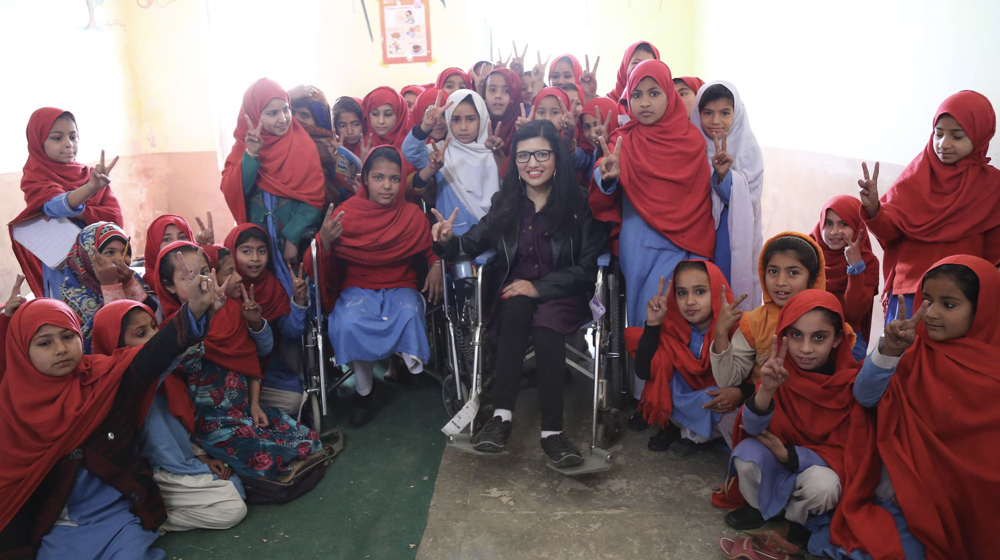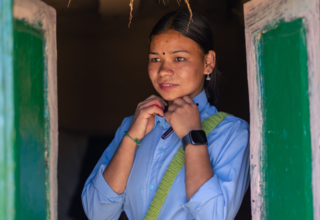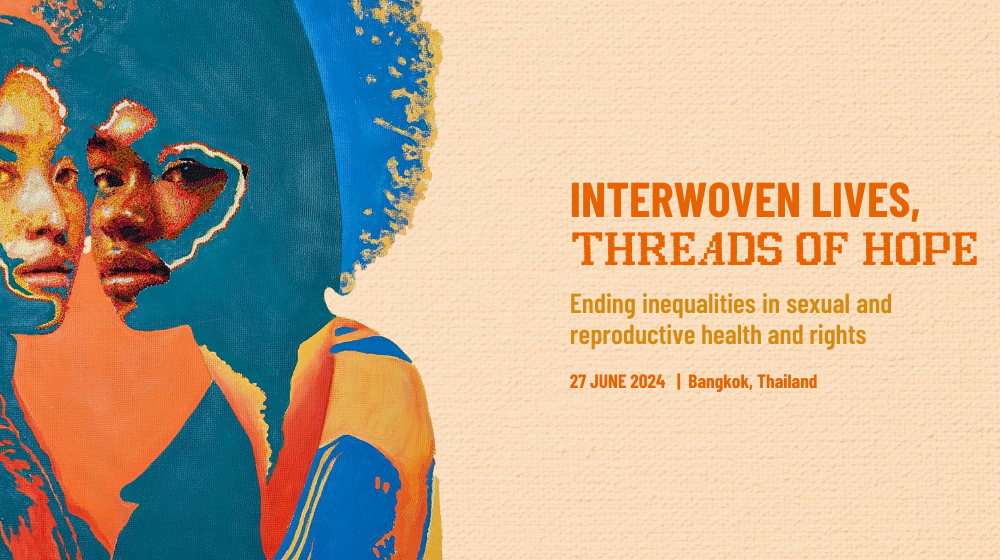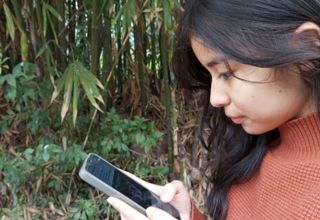You are here
“Service providers are not aware about the rights of women and girls with disabilities”

“Service providers are not aware about the rights of women and girls with disabilities”
Abia Akram is a Pakistani disability rights activist. She is the founder of the National Forum of Women with Disabilities in Pakistan, and a leading figure in the disability rights movement in the country as well as in Asia and the Pacific. She advocates for the rights of persons with disabilities; lobbying with policymakers in the public, private and development sector for inclusion of persons with disabilities in the process. She conducts consultations for the empowerment of persons with disabilities by creating an accessible environment and promotes accessible information for persons with disabilities from services of health, education and livelihoods.
“It’s a shift from the medical perspective to the right-based approach,” Abia says. “They can talk about the rights of persons with disabilities and change that mindset from the charity model.”
Abia works to normalize disability in Pakistan. “Disability is just a different lifestyle and I'm very proud of my disability. We can give that same understanding to other persons with disabilities.”
Laws in Pakistan make it clear that every municipality needs to be inclusive of the rights of persons with disability. She says the goal was to build the inner core of services to stop gender-based violence for women and girls with disabilities. “We conducted counseling sessions by women with disabilities for women with disabilities so they can have someone to discuss their concerns with,” Abia says. “More services are required for gender-based violence survivors.”
From peer-to-peer interviews with more than 500 women with disabilities, one of the findings was that women with disabilities are not learning about their bodies or sexuality education. “Their family members do not discuss sexuality in front of them so they are not aware of their rights.”
She says sometimes sexual harassment is happening, but they are not aware. “If they know, then they are not able to talk about it because their families have overlooked it.”
Abia says it’s a challenge to develop support systems when accurate disability data is lacking. “Some of the families don't want to identify that they have a daughter with a disability in case they might face stigma or discrimination.”
"Some of the families don't want to identify that they have a daughter with a disability in case they might face stigma or discrimination.”
The latest survey from the National Forum of Women with Disabilities in Pakistan, found that 70% of women experienced some kind of challenges during the pandemic response. The survey found that 90% of the time, service providers were not physically accessible or trained to communicate with key populations like people living with disabilities. “Service providers are not aware about the rights of women and girls with disabilities. They don't have the services to assist women and girls with disabilities.”
Abia shares a story of a woman in an earthquake affected area. “She had an intellectual disability and got pregnant three times,” she says. “Her mother had to leave the house to get to her job as a domestic worker. She could not afford to stay at home with her daughter with an intellectual disability.”
Abia says when the daughter became pregnant for the third time by an anonymous abuser in the neighborhood, the girl was sterilized with the consent of her mother.
Cases like this highlight the need to talk about the rights of those women and girls with disabilities. “If a deaf woman goes to the police station, the police don't know how to do sign language.”
Abia says more resources are needed to develop training manuals for the public workers and all stakeholders. “They can change their perspectives of women and girls with disabilities. We need to look at how we can provide better support mechanisms.”
A key priority is widening psychosocial support. “This is the first time we got women with disabilities training on how to deliver some psychosocial support.”
"There is no need to learn about rights unless we are providing them with immediate support mechanisms and referral systems. We raise awareness, so if they do experience sexual harassment they know who to call and where they can go.”
With digital and community networks they identified 1000 women with disabilities who were able to engage vulnerable groups. “There is no need to learn about rights unless we are providing them with immediate support mechanisms and referral systems. We raise awareness, so if they do experience sexual harassment they know who to call and where they can go.”
They developed a mobile application to provide information to women with disabilities so they don't have to talk to their family members about a sensitive issue. “They just click the button and rescue persons will respond.”
“It's continuous work. We cannot say we have achieved everything. We have only started the discussion.”
Abia and her team established a virtual support response task force within the protection cluster in Pakistan for persons with disabilities. “We are able to reach centers all over the country,” she says. “We provide training to stakeholders on the inclusion of persons with disabilities.
Abia says making systems more inclusive is a long-term process that will take years. “It's continuous work,” she says. “We cannot say we have achieved everything. We have only started the discussion.”
Learn more



